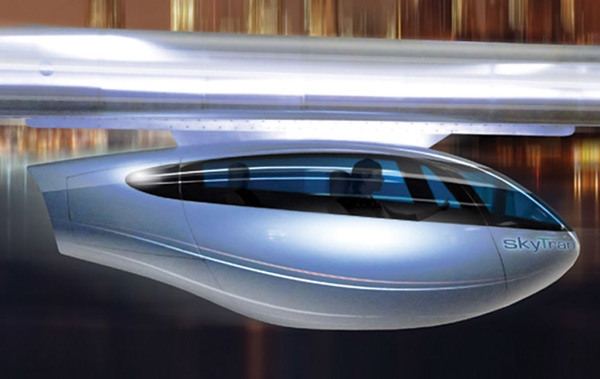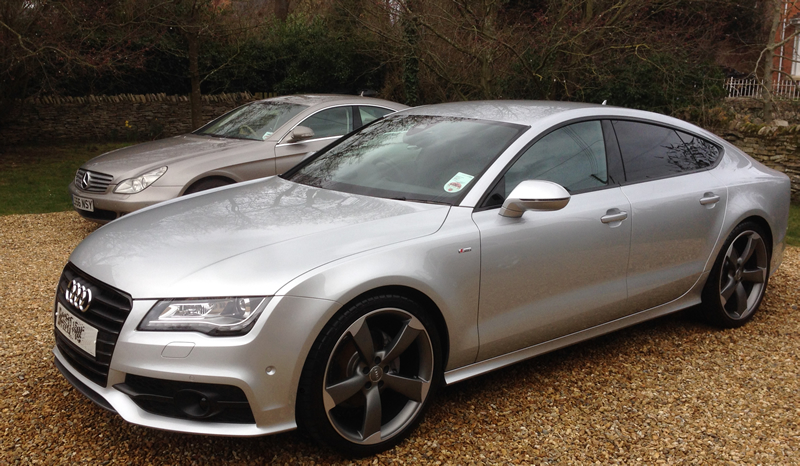An interesting article in the Times today on HS2 and the proposed suggestion to cut its top speed by 40 mph from 225 mph to 185 mph reducing the energy it consumes. This suggestion would mean the train would only arrive 25 minutes faster than it does today, making the £50bn investment look rather wasteful. What I don’t understand is why are we not trying to use this money and investment to reinvent the railway completely?
I have long harboured thoughts about the idea of a suspended track utilising maglev technology (magnets to suspend the train above the track) to allow pods to float between locations. Such a track would be small enough to be installed into our crowded cities and extend out to the country. Each pod could be the size of a standard taxi allowing people to book a pod for when they wanted it and arrive at their chosen location at a time to suit. The technology of today could allow for such an invention and surely with a £50bn cheque from government it could be made a reality?
You may not be aware that the first installation of a commercial maglev train was installed in Birmingham Airport in 1984 and it operated successfully for nearly eleven years. It fell into disrepair because spare parts were hard to come by and was replaced in 1995 by a cable operated train. Wouldn’t it be great though if we managed as a country to then link Birmingham to London using the same technology 30-years later.
Wired magazine recently covered SkyTran which is essentially the same idea and is being considered for installation in Tel Aviv. I like this concept because it looks to be light on infrastructure and reducing the potential cost for such a system to be deployed. Other ideas include Elon Musk’s much publicised Hyperloop project which looks to install a tube with low air pressure to sustain travel at 760 mph.
China’s famous Shanghai Transrapid is one step too far in my mind, requiring huge resources to build and support. While the train can travel at 268 mph and carry hundreds of passengers it looks over engineered and a much simpler, sleek and individual solution would be a better bet. It does raise an interesting point in regards to funds, because while the Transrapid cost $1.3bn to build 18.95 miles, it does mean that with our budget of £50bn we could build 1,140 miles across the UK.
I am all for infrastructure builds but instead of using the opportunity to develop something genuinely ground breaking, we are going to wait 15 years for something that is old today.





Agreed, although one part of me wants to forget trains altogether and build new roads that could link into sophisticated in-car systems, which means that when travelling on them your vehicle could go into a kind of auto-pilot mode. The downside would be if the road was too long then people might fall asleep for the re-join, but I’m sure there could be ways of tackling that too.
Trains IMO charge a lot and give a little; I’ve found the local bus to be cheaper and more reliable so long as you don’t travel at night with the drunks or when they’re packed to the ceiling with noisy school kids shouting endlessly for 30minutes. Indeed these days a lot of train operators like buses so much that they very kindly send you off on one 🙂 .
On a train I’ve sometimes paid for a first class ticket because I’ve got a lot to carry, boarded and then found it full with others sitting in my seat. It’s normal practice now for people to sit in reserve and first class seats, even with disabled seating, and rarely do you see a conductor checking tickets during the journey. Meanwhile you pay through the nose for this experience.
Is it any wonder that most would rather pay less and just drive themselves to work. So in that respect I do support the ideal of personalised little mini-train-cars for smaller groups of people but it would cost a lot more than HS2 to do that in any meaningful way. I don’t think politicians are brave enough, especially given the terrible outcome of Trams in Sheffield. The two are not the same but politically they’re not that different.
someone already has…..
http://www.geektime.com/2014/04/01/tel-aviv-to-eilat-in-7-minutes-the-first-hyperloop-will-be-in-israel/